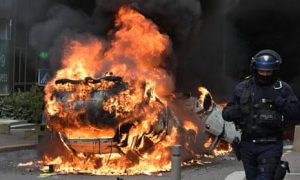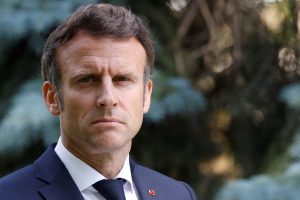French President Emmanuel Macron on Friday warned that Lebanon risks a return to civil war if it is left alone to deal with the crisis that followed the deadly Beirut port explosion early this month.
The French President will head to Lebanon on Monday in a new bid to press its leaders to undertake radical reform in the wake of the massive explosion that has left more than 180 people dead.
“If we let Lebanon go in the region and if we somehow leave it in the hands of the depravity of regional powers, it will be civil war” as well as “the defeat of what is the very identity of Lebanon,” Macron said.
Also Read | FBI to join Beirut blast probe: US envoy
The capital city of Lebanon was rocked by two massive blasts on August 4, which was blamed on a store of ammonium nitrate stored at the Beirut port’s warehouse. Protests broke out in Beirut a couple of days after the blasts, with people blaming the authorities for the blasts due to negligence. Many Lebanese have blamed the disaster on a ruling class they charge as being mired in nepotism, corruption, and neglect since the 1975-1990 civil war.
Macron spoke of the “constraints of a confessional system” in a country populated by Christians, Sunni Muslims, and Shiites. But he said that added to this was “what can be mildly described as vested interests” and this had led to “a situation where there is hardly any (political) renewal and where there is there is almost an impossibility of carrying out reforms.”
He insisted that France would follow a policy of being “demanding without interfering” and awaited reforms like passing an anti-corruption law and reforming public contracts, the energy sector, and the banking system.
“If we do not do this, the Lebanese economy will collapse” and “the only victim will be the Lebanese people (…) who cannot go into exile”, he warned.
He extolled Lebanon’s multi-confessional make-up saying it “is perhaps one of the last existing forms” in the Middle East of the “peaceful possible coexistence of religions” and a pluralist system based on “education and culture”.






